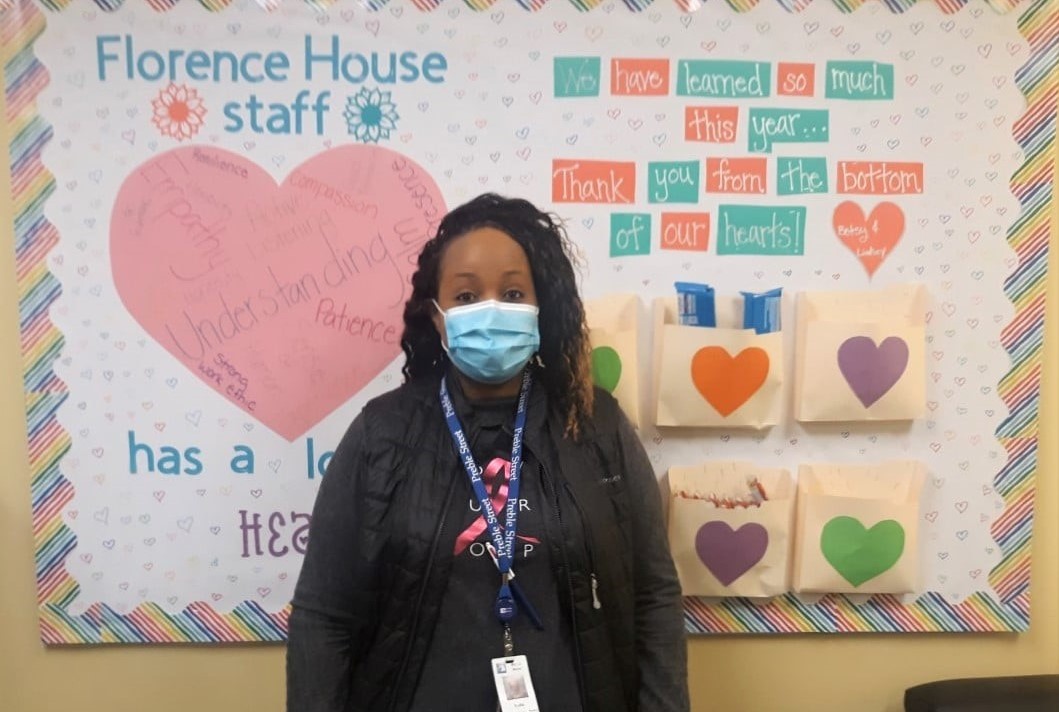Women experiencing homelessness face many obstacles on their path to stability and security. Like homeless youth, they are especially vulnerable to violence while trying to survive on the streets. Some have untreated mental illness and/or substance use disorders, are transitioning from incarceration, or have serious medical needs — especially as the population of people experiencing homelessness continues to age. Caseworkers at the Florence House Shelter and Safe Haven meet these women wherever they are at in life and help them move forward with dignity and respect.
Despite the obstacles of the pandemic and the affordable housing crisis, staff at Florence House have connected more clients to permanent housing over the last two years than in any year prior. Women who come to stay at the shelter, which operates 24-hours every day of the year, are assigned a caseworker who meets with them to understand and meet their needs while helping them map out their goals.
Often these goals include finding stable, permanent housing. “When they’re housed, people think the job is done. The job is not done! It continues, usually for about a year,” shares Lydia Gwizimpundu (she/her), Florence House Caseworker, pictured above. “I check-in with them at least every 30 days to make sure they have everything they need to stay housed. Do they have enough food? Are they able to pay their rent on time? What other supports do they need?” Providing food boxes, information, referrals, paperwork assistance, crisis intervention, and more, caseworkers work alongside their clients before and after they are housed and empower them to succeed, even when faced with barrier after barrier.
Right now, there is a severe shortage of critical resources, including detox programs and affordable housing. Too often the programs that do exist require clients to overcome several hurdles before accessing services. “It’s hard when you put in the work and your client is putting in the work and it feels like you’re knocking on door after door, but are still unable to access needed resources,” says Lydia. “I wish there were more low-barrier programs across the board, and less restrictions.”
But for as long as these systems are in place, Lydia and her fellow caseworkers will walk alongside the women they serve, helping them overcome obstacles and standing in awe of their resilience. “I love when the people I’m working with meet the goals they’ve established, it makes me so happy. It’s the most rewarding part of the work,” says Lydia.

